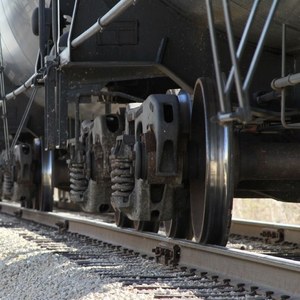RFA comments on proposed DOT rules for rail shipping

December 5, 2013
BY Renewable Fuels Association
In comments to the U.S. Department of Transportation, the Renewable Fuels Association pressed the DOT to look at the underlying causes of train derailments, which include rail construction and maintenance, instead of focusing exclusively on the expensive retrofit of current DOT-111 railcars. The RFA comments are in response to the Pipeline and Hazardous Materials Administration advanced notice of proposed rulemaking for the rail shipping of hazardous materials.
Bob Dinneen, president and CEO of the Renewable Fuels Association, explained, “The ethanol industry takes safety very seriously, but we don’t re-engineer vehicles already on the road with new, expensive suspension systems to combat any potential damage from hitting a pothole on the interstate. No, we fix the pothole. The same should be true with rail transportation.”
Advertisement
Advertisement
The RFA has always placed safety front and center. Commenting in its response to the DOT, “Safety is a top priority of the ethanol industry, especially when it comes to ethanol transportation on the rail ways. RFA has assembled a variety of resources to serve as guidance documents and to ensure proper precautions are taken to avoid an incident involving ethanol and the rail ways.”
The comments point to specific safety successes, “The U.S. Department of Transportation’s Federal Railroad Administration announced that 2012 was the safest year in rail history with 99.997 percent of the approximately 1.7 million carloads of hazardous materials shipped in 2012 successfully reaching their final destination without a release caused by an accident.”
Dinneen stressed the need for PHMSA to focus on the deep-seeded problem of rail integrity, “Rather than focusing exclusively on railcar design, a more prudent approach would be to invest in initiatives that address these root causes and keep the railcars on the tracks. Such initiatives should include improvements in inspection and track maintenance protocols, utilizing available technology to assist in reducing human error (e.g., Positive Train Control), and improved communication systems for rail operations. These types of actions would provide a better cost-benefit ratio and help stop the derailment incidents from occurring at all.”
Advertisement
Advertisement
He continued, “RFA strongly believes that DOT, FRA and PHMSA need to address the root cause of the recent train derailments in a swift and comprehensive manner. DOT must look closely at recent incidents and develop sensible regulations that address the human errors and substandard railways that lead to incidents. Otherwise, train derailments, whether carrying hazardous material or human passengers will continue to injure people, property, and the environment.”
The Renewable Fuels Association continues to support P-1577 as submitted, keeping the option of a jacketed or non-jacketed car; does not support costly modifications to the existing DOT-111 tank car fleet based on current available data that has not been third party reviewed; and believes monetary costs for modification to existing DOT-111 for Denatured Fuel Ethanol are exceptionally high.
Related Stories
The Oregon DEQ has confirmed that the 2024 annual report deadline for the state’s Clean Fuels Program will be delayed until May 30 due to a cyberattack the resulted in an extended outage of the Oregon Fuels Reporting System.
Legislation currently under consideration by the New York legislature aims to establish a clean fuel standard (CFS) that would reduce the greenhouse gas (GHG) intensity from on-road transportation by 20% by 2033.
On April 23, the Advanced Biofuels Association (ABFA) met with officials in the U.S. EPA to convey the vital importance of domestic biofuel production to the Trump-Vance administration’s energy dominance policy agenda.
Aemetis Inc. on April 23 announced that its subsidiary in India, Universal Biofuels, has been working with the U.S. government to support the success of American interests in India. U.S. Consul General Jennifer Larson recently toured the facility.
CARB on April 4 released a third set of proposed changes to the state’s LCFS. More than 80 public comments were filed ahead of an April 21 deadline, including those filed by representatives of the ethanol, biobased diesel and biogas industries.
Upcoming Events










